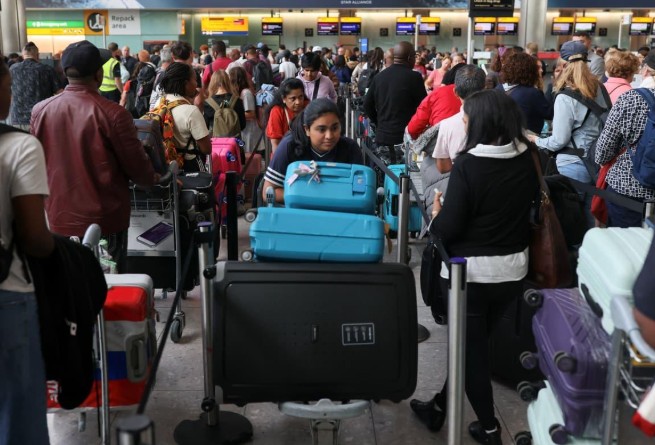UK Airports Chaos: Over 120 Flights Disrupted by Radar Glitch Amid Summer Travel Surge
A radar malfunction brought major UK airports to a grinding halt on Wednesday, creating chaos for thousands of passengers during one of the busiest travel periods of the year.
The glitch, which originated at the National Air Traffic Services (NATS) control centre in Swanwick, led to over 120 flight disruptions across major hubs such as Heathrow, Gatwick, Manchester, Edinburgh, and Birmingham.
A total of at least 67 departures and 55 arrivals were cancelled, with several others delayed or rerouted. The technical hiccup, which NATS described as “radar-related,” forced a temporary stop to departures as engineers scrambled to switch operations over to a backup system.
Though the fault was resolved within 20 minutes, the domino effect was far-reaching.
“It’s outrageous,” said Ryanair’s Chief Operating Officer, Neal McMahon, as he slammed the incident and demanded accountability. “This is the second major outage in less than a year. We need answers, and we need the NATS CEO, Martin Rolfe, to step down.”
EasyJet’s COO David Morgan echoed the dismay, saying the disruption was “extremely disappointing,” especially as it struck during the peak of summer travel.
Thousands of passengers took to social media to vent their frustration, and stories of missed weddings, business meetings, and long-awaited family reunions flooded timelines. The overall mood was one of disbelief. For many, it was déjà vu.
This is not an isolated case. In August 2023, a similar failure plunged UK airspace into disarray, marking the worst air traffic meltdown in nearly a decade.
With two serious glitches in under a year, questions are mounting about the resilience of the UK’s air traffic control infrastructure.
NATS was quick to issue a statement, stressing the fault was not caused by a cyberattack and that “operational safety was maintained throughout.” But the public’s patience is wearing thin.
Transport Secretary Heidi Alexander assured the public that the government is “closely monitoring the situation.” She also advised passengers to liaise with their airlines for real-time updates as recovery efforts unfold.
This recent episode has reignited debates over the future readiness of the UK’s aviation sector. Experts argue that while no system is immune to technical failures, repeated breakdowns of this scale indicate a systemic issue.
Aviation analysts and political figures alike are calling for sweeping reforms. Greater investment in digital infrastructure, enhanced backup protocols, and clearer lines of accountability are top of the list.
The ripple effect of such glitches isn’t just about delayed flights. It’s about trust. Public confidence in air travel is shaken when preventable disruptions become regular occurrences.
In an age where digital systems underpin nearly every facet of infrastructure, the UK’s air traffic control must evolve. These aren’t just technical hiccups, they’re alarm bells. And they’re ringing louder with every incident.
The message from passengers, airline executives, and regulators is clear: enough is enough. Reforms aren’t just necessary, they’re overdue.
As the travel industry continues to rebound from the pandemic, ensuring safe and seamless air travel is more important than ever. For UK airports, the spotlight is now firmly on preparedness, transparency, and the promise that such failures won’t become the norm.






